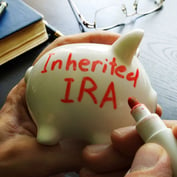As the Obama administration moves to encourage American workers to put away more money for their retirement, a Hartford Financial Services Group Inc. executive is recommending some cautionary tips to workers and their advisors.
Tom Foster, Hartford’s national retirement spokesperson, points out these new rules:
- The Internal Revenue Service will change tax forms to allow refunds to be automatically deposited into retirement accounts. Whether the money is directed at an individual retirement account or a defined contribution plan such as a 401(k), employers and their employees need to be sure not to exceed the annual contribution limits for these plans. In 2009, the limit on contributions by individuals to 401(k) plans is $16,500, and the limit on contributions to IRAs is $5,000, with certain exceptions.








 October 16, 2009 at 08:00 PM
October 16, 2009 at 08:00 PM










